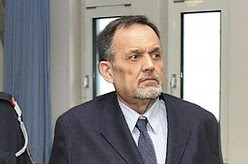 The excellent and hard-hitting 'Wanstead Matters' leaflet
The excellent and hard-hitting 'Wanstead Matters' leafletThe British National Party’s decision to fight a Redbridge Council by-election in Wanstead threw a huge rock into the local political pool. John Evans, who is also on the BNP’s list for the European election in London, came a poor fifth out of six candidates, with only 4.9% of the vote. There are important lessons to be learned from the campaign in this east London borough, where the BNP has one councillor.
Two issues caused controversy even among anti-fascists. The first was whether it was right to oppose the BNP’s participation in a local hustings meeting, where the other five candidates would have had to share a platform with the BNP. The second was how tough anti-BNP leaflets should be.
There is a well established principle that goes beyond the anti-fascist movement that decent people do not share platforms or debate with fascists, racists and nazis, whether at universities, during elections or elsewhere. The main reasons are that one cannot debate with people of such abhorrent views, and one cannot have a sensible debate with liars. Most of the democratic parties would not be seen dead with the BNP.
Labour has been largely solid on the issue. The Conservatives have been less certain but in recent years leading Conservatives, including members of the Shadow Cabinet, have taken a firm and very public anti-BNP line. Lib Dem views vary and some people in the Green Party seem to have difficulty making up their minds.
The Churches have taken a more vigorous line against the BNP and thrown them out of hustings held in church buildings. Recently church officers had the BNP removed from church property in Brentwood and the Cathedral grounds in Lichfield.
Three local organisations – the Wanstead Society, Counties Residents’ Association and Counties Neighbourhood Watch – had organised a hustings for the week before polling day. All six candidates were invited.
Searchlight contacted people in the local political parties to establish that they would refuse to share a platform with the BNP. The young Labour candidate, Ross Hatfull, responded quickly by calling for the other candidates to join him in stopping the BNP from taking part.
The Liberal Democrat told us that she was reluctant to share a platform with the BNP, especially after she had personally seen the BNP’s aggressive behaviour while out leafleting, The Conservative candidate stated he was prepared to sit down with the BNP and, perhaps most shockingly, the Green candidate who has been active in local anti-racist politics took the view that he could win any debate against Evans, which is not the point.
Ross’s brave stance caused the hustings to collapse, as the organisers were unwilling to exclude the BNP. Even within the Labour Party opinions were divided. One member I spoke to appeared to be more concerned about finding himself in an embarrassing position when he next attended a Wanstead Society meeting. Others were worried that there might be far-right infiltration in the society.
As all this was going on, BNP activists clashed with a local black resident, who wanted to hand back a BNP leaflet pushed through her door. In front of the resident’s five-year-old son, the BNP leafleter told her to “come to me because I don’t come to niggers” and other racist abuse.
The abusive fascist was arrested and interviewed, but no charges have been brought as the only witnesses were the victim and three BNP members.
Within hours the victim was being abused on BNP and other far-right websites, which also posted a photo and her details. Among other things she was called a benefits cheat, when in fact she works as a nurse at a local maternity unit. The police are back on the case.
The Wanstead and Woodford Guardian reported the attack and published a letter vigorously attacking the BNP bullies. But Chris Carter, the editor of the Ilford Recorder, disgracefully attacked Ross Hatfull and the Labour Party. He also set up an online poll on whether Labour was right to refuse to attend the hustings, apparently unaware of the BNP’s policy of rigging such polls by getting members all over the country to vote.
Carter knows well what a bunch of yobs the BNP are. Last year Councillor Bob Bailey, BNP group leader in Barking and Dagenham, launched a foul-mouthed verbal assault on the Recorder’s news editor. After a phone call, peppered with four-letter words in which Bailey called her a “jobsworth” and a Nazi, he turned up at the newspaper’s offices with a group of party colleagues. After spending 20 minutes shouting abuse through a megaphone, they were moved on by the police.
The other issue is how to pitch anti-BNP leaflets. Local anti-BNP activists distributed a leaflet with a very strong message headed “Don’t vote for scum”, which told the full and unpleasant truth about the BNP. It highlighted a BNP organiser’s statement that there was little point in keeping disabled people alive.
It may go some way to explain why the BNP candidate polled so badly, falling far short of the percentage the BNP would need to gain a London MEP on 4 June.
Evans’s final leaflet, distributed just before polling day, was partly about law and order. Perhaps he should remember the person who encouraged him to join the BNP in the first place, a man with a criminal record for his part in BNP-inspired rioting in the North West a few years ago. It is likely the electorate in London will be hearing more about that in the course of the European election campaign.
The “don’t vote for scum” leaflet can be
read here.
Hope not hate


















